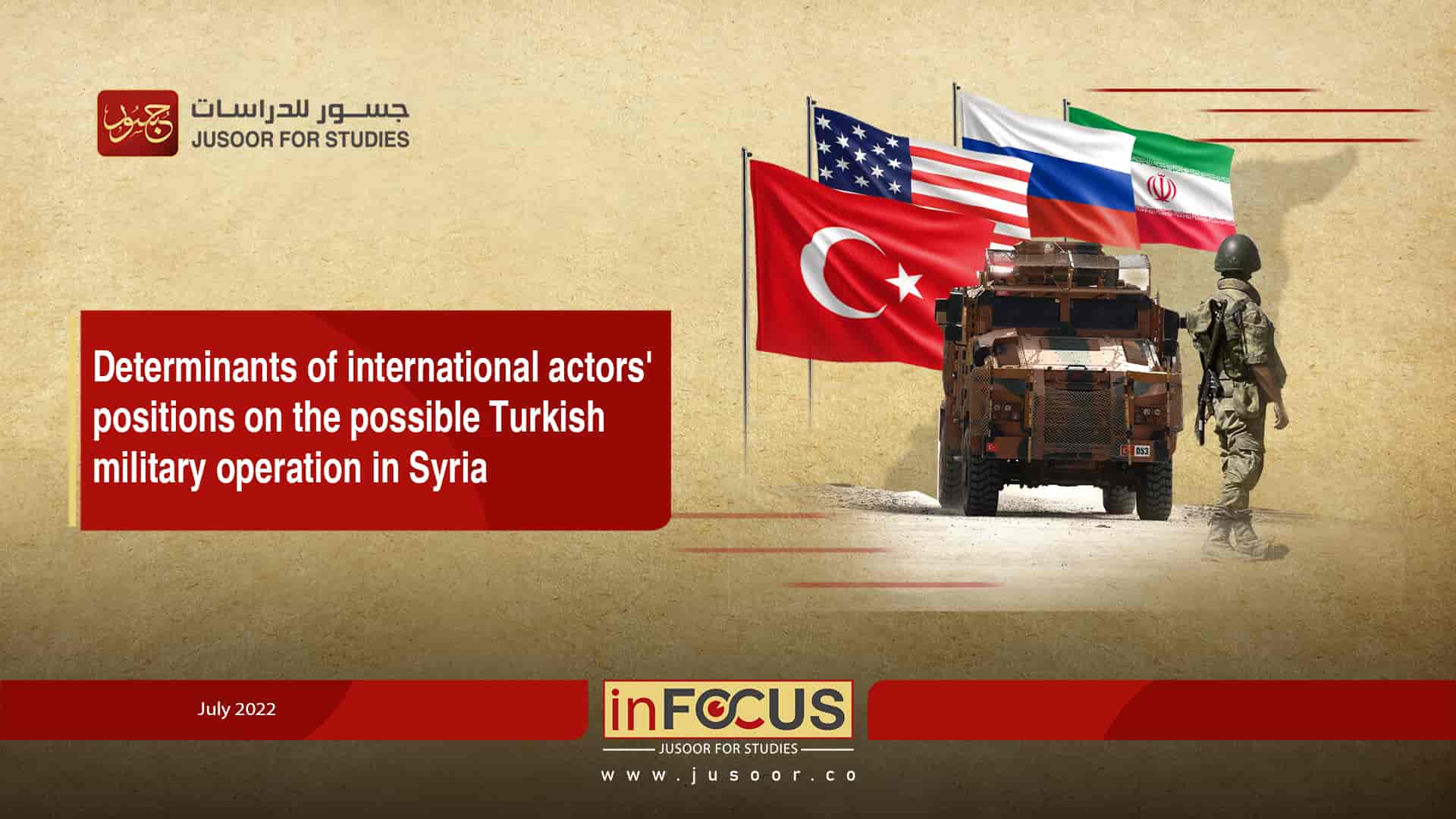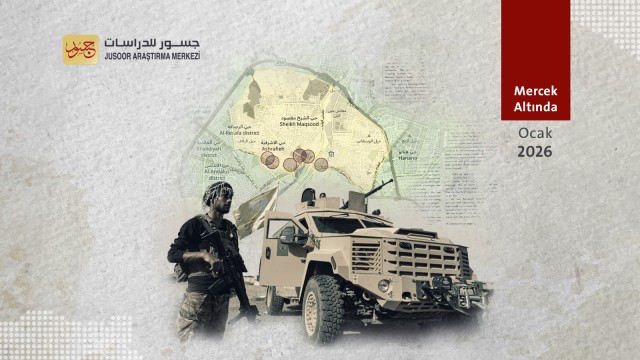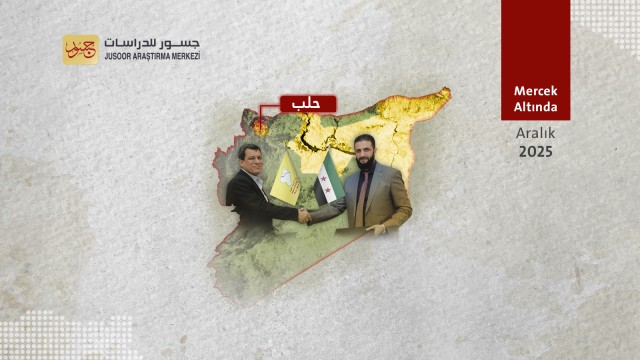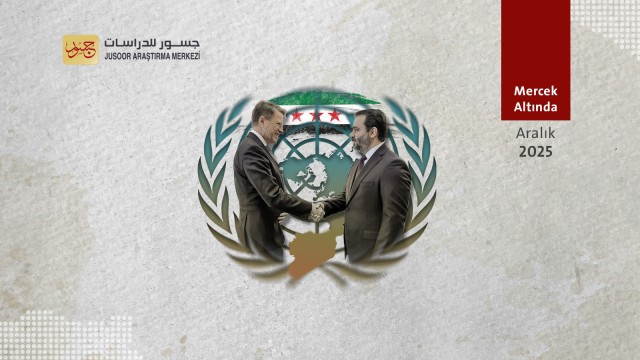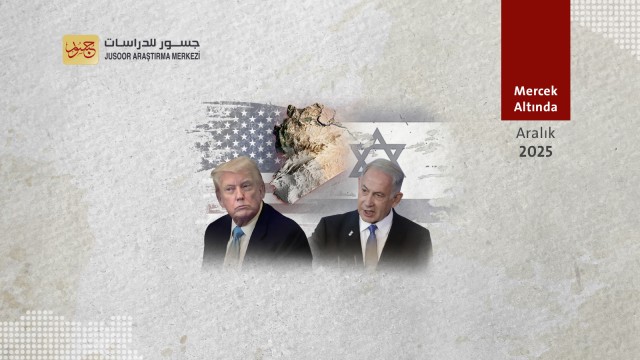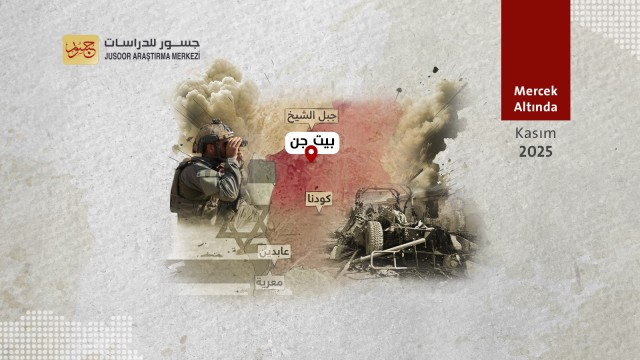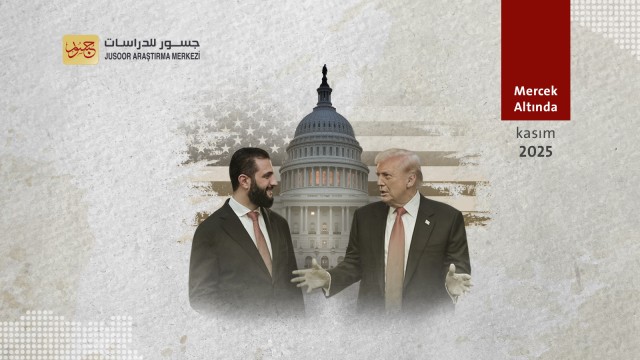Determinants of international actors' positions on the possible Turkish military operation in Syria
Font Size
Determinants of international actors' positions on the possible Turkish military operation in Syria
In late June 2022, Turkish President Recep Tayyip Erdogan linked the start of the new military operation in Syria to the completion of the preparations, without specifying its nature.
It does not seem that what is meant by this is the military preparations; Türkiye has already had bases and points in northern Syria that allow Ankara to support ground operations at any time. This means that the preparations are often linked to the political positions of international actors towards Türkiye's completion of the establishment of the security belt.
Indeed, Türkiye is engaged in multilateral talks with the United States, Russia and Iran; in order to reach understandings with them that ensure that there is no military clash between the forces or any impact on diplomatic relations.
In practice, Washington, Moscow, and Tehran all have limitations for their positions regarding the possible Turkish military operation in northern Syria, as shown below:
1. Iran:
Iran openly declared that it opposed the Turkish military operation in Syria on the lips of the Iranian Foreign Ministry spokesman on June 20, 2022, who considered that the use of a military solution to settle disputes is a violation of the unity and national sovereignty of states.
However, on the 27th of the same month, during the visit of Foreign Minister, Amir Hussein Abdullahian to the capital, Ankara, Tehran's tone changed significantly regarding the position on the military operation, in terms of understanding Türkiye's security concerns and the need to address them permanently and completely.
Tehran’s rejection of the Turkish operation is linked to a number of factors; most notably:
the decline in bilateral coordination in Syria and Iraq, and the threat to Iran’s influence and interests in northern Syria, including a change in the map of control in favour of the opposition at the expense of the regime. In addition to that, Iran worries about any increase in security coordination between Türkiye and Israel, including the Syrian file.
On the other hand, there is reason for Tehran to change its position on the military operation in northern Syria; such as obtaining guarantees from Türkiye that its interests will not be jeopardized in northern Aleppo. Moreover, ensuring that Ankara does not abide by the Western sanctions imposed on Iran and providing diplomacy over any other means to resolve bilateral differences over Syria are another guarantees Iran wants to have from Türkiye.
Despite that, Iran prefers that any military activity of Türkiye be in Syria based on the return of coordination with the Syrian regime.
2. Russia:
Russia has repeatedly announced over the past weeks that it opposed any new military action on Syrian territory, on the grounds that this step threatens stability. Furthermore, the Russian delegation stressed during the Astana tour (18) its country's position rejecting the operation.
Of course, Russia is not open for any new change in the map of control at the expense of the regime; especially since it is preoccupied with the conflict in Ukraine. However, Moscow has always used - and still is – Türkiye’s threat to launch a new military operation in Syria to pressure the Syrian Democratic Forces (SDF) in order to get them to make concessions regarding the relationship with the regime.
Russia's conservative position on the Turkish operation can also be understood, as it is keen not to lose its role as a reliable mediator to the SDF, especially since such a step may undermine its efforts to take SDF away from the United States, and to entice the Kurds in general to make a settlement with the regime.
Moreover, it is not expected that Russia will easily abandon its position in favour of Türkiye, in light of the unprecedented tension between Moscow and NATO, unless the former gets a reward in other issues, whether they are related to Syria or Ukraine.
3. The United States:
In early June, the United States expressed deep concern about Türkiye's intentions to launch a new military operation in Syria. This should be seen in light of the US not responding to Ankara's continued demands to end the activities of the People's Protection Units and SDF from the 30 km-deep safe zone along the border strip.
Instead, Washington is still trying to give SDF reassurances; emphasizing the continuation of working with it as a local partner in the fight against terrorism, and demonstrating the importance of maintaining military stability in areas such as Ain al-Arab; reactivating the activity within the Kharab Eshq base near Ain al-Arab in order to carry out operations against the leaders of the “ISIS” organization in the areas of Aleppo and Idlib, northwest Syria.
On one hand, it can be said that Washington does not want to give Moscow the opportunity to use the Turkish military operation to achieve an understanding between the SDF and the regime.
On the other hand, the US often prefers to address Türkiye’s concerns through diplomacy, i.e. by reformulating a new memorandum of understanding, similar to the Ankara Document (2019), in which the United States guarantees the removal of the PKK from the safe zone, and offers options acceptable to Türkiye to discourage it from joint coordination with Russia regarding North and Northeast Syria.

